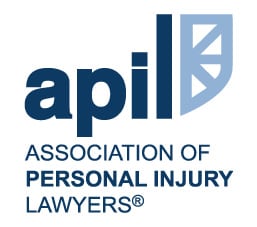Tom has over two decades of experience in personal injury and medical negligence law. He exclusively represents claimants facing life-changing injuries.
Tom has successfully concluded intricate, high-value litigation in personal injury and clinical negligence, particularly in catastrophic cases involving brain and/or spinal injuries. His focus on spinal injury cases has spanned many years, during which he collaborated closely with the Spinal Injury Association (SIA), advocating for their injured members.
His areas of specialisation also encompass coronial law, where he represents bereaved families and other interested parties at inquests. Additionally, Tom is well-versed in handling Criminal Injuries Compensation Authority (CICA) claims, including representing appellants at First Tier Tribunals.
Tom brings a wealth of expertise in spinal injuries, severe brain injuries, and fatal accidents. He has extensive experience representing bereaved families at inquests, providing regular guidance to clients on the procedural intricacies involved when a case is referred to the coroner.
As an expert in spinal injury, Tom has strong links with the Spinal Injury Association (SIA) and used his in-depth knowledge to good use by setting up and assisting a specialist cauda equina support group, that continues to operate throughout the UK.
- Member of the Association of Personal Injury Lawyers (APIL),
- Member of Action Against Victims of Medical Accidents (AVMA)
- Headway UK-approved solicitor
- Current Chair, and a founding trustee of the brain injury charity Headway Salisbury and South Wiltshire.
Recent work
Personal Injury cases:
- Mr H – Claimant was a contracted builder and sustained a catastrophic spinal injury when he fell through the floor of a chapel that was being renovated. Liability was initially disputed by the Defendant, who raised issues of contributory negligence. Proceedings were served and the case eventually settled in a Joint Settlement Meeting prior to trial, with the Claimant recovering 100% of his damages which were in excess of £2 million. Claimant’s father witnessed his son’s fall, a separate claim was successfully brought for the father as a secondary victim.
- Mr W – Claimant was a mobile heating engineer who sustained an injury whilst exiting his van during the course of his employment. The case was heavily contested by the Defendant. The Claimant made a Part 36 offer in an attempt to settle the case at a relatively early stage, but this was rejected. The case proceeded to a fully contested trial. At trial the claimant’s factual evidence was preferred and judgment was ordered for the Claimant, with a reduction of 40% for contributory negligence. The Defendant applied for permission to appeal the judgment, but was unsuccessful. The Claimant was awarded indemnity costs and interest having beaten their own Part 36 offer which had been made some 18 months earlier.
Clinical Negligence case:
- Mr McC – Complex claim against NHS Trust for pressure sores caused by failure to turn / implement a proper skin regime. The claimant had suffered a spinal injury many years previously. He had meticulously maintained a care regime to guard against pressure sores. When he became ill he was admitted to hospital where the damage to his skin occurred, although it was not recognised/diagnosed until he was discharged. The Defendant admitted breach of duty but causation was an issue throughout. The claim eventually settled at a JSM prior to trial. The claimant recovered damages of £250,000, largely reflecting the permanent damage to his skin, and the inherent risk of further skin injury in the future.
CICA case:
- Mr C – Claimant was violently assaulted whilst in a pub with his wife. He was punched to the ground, hitting his head. He sustained a brain injury and was left with cognitive and physical limitations, including chronic fatigue, and reduced capacity for work. CICA rejected the original application on grounds that the Claimant may have provoked the attack. Witness statements and further evidence from the police were obtained. CICA eventually accepted the claim but their initial offer of c.£200,000 was considered insufficient. The case progressed through to the First Tier Tribunal, where the Claimant was awarded the maximum sum of £500,000.







